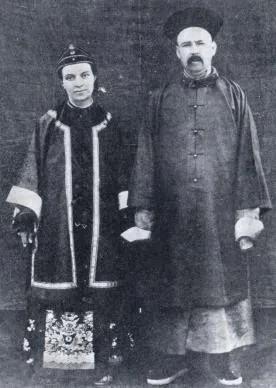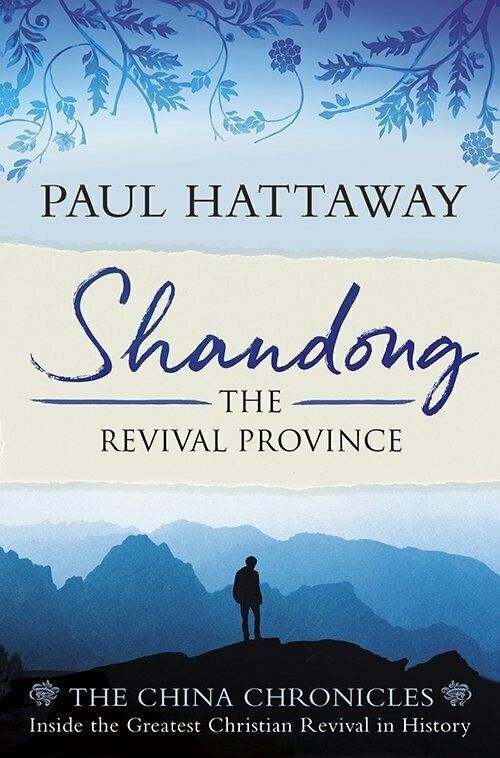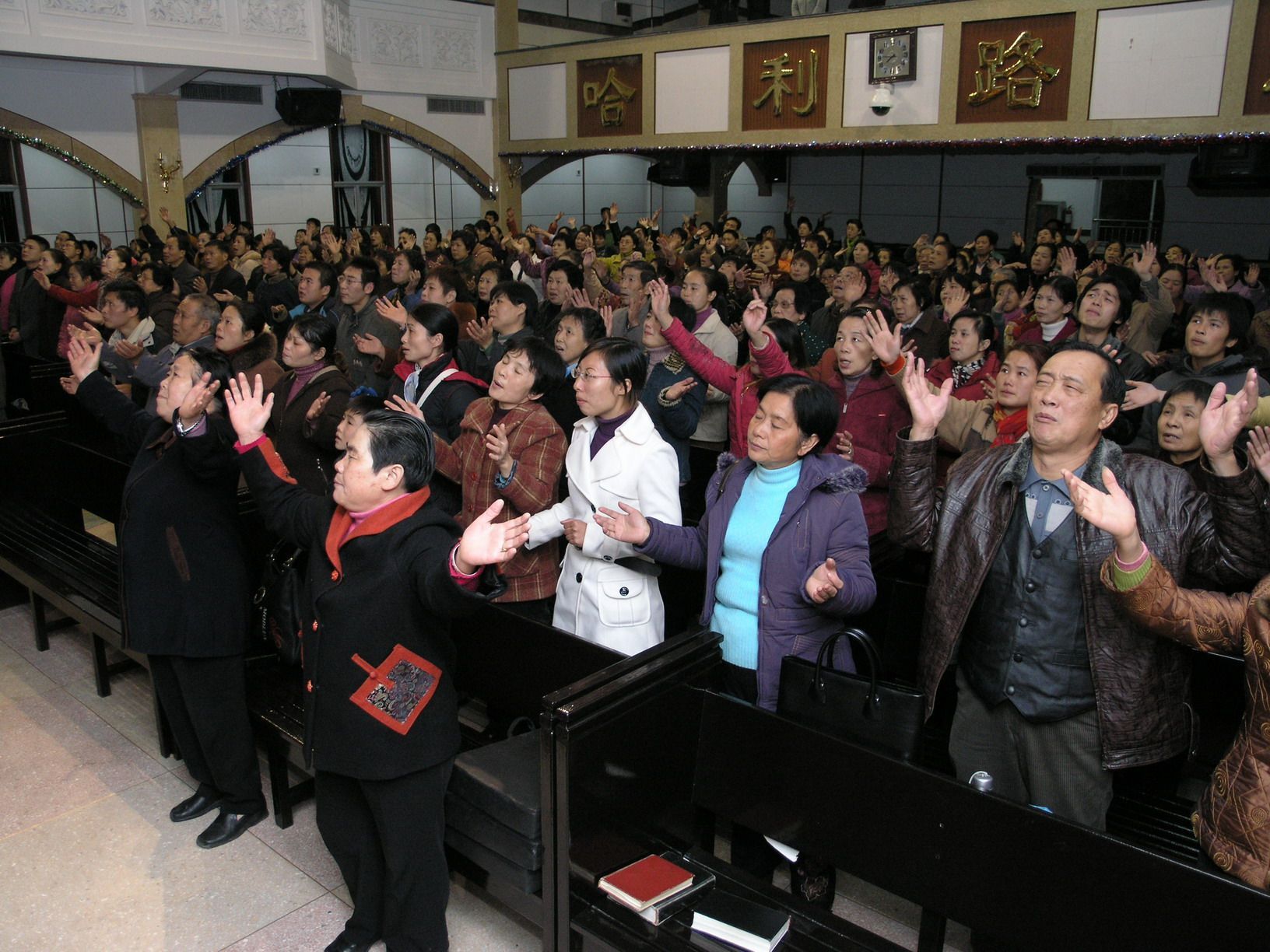Timothy Richard - the Mission Reject (1845 - 1919)

Timothy Richard and his wife Mary.
The English Baptist Mission was one of the first Evangelical groups in Shandong, but their early attempts at establishing a base ended in failure and doctrinal squabbles between its members. One of the first English Baptists, C.J. Hall, died soon after preaching his first sermon at Yantai. His replacement, H. Kloeckers, built a small chapel 30 miles (48 km) inland, and baptized 15 converts in the first several years. This promising start was cut short, however, when "owing to certain differences, his services were discontinued." 1
Two other missionaries died soon after arriving in the province, but much hope was held in the arrival in 1871 of a missionary-doctor, Dr. Brown. Before long the petty divisions of the mission once again struck. Brown and the home committee "did not see eye to eye, and after three years his connection with it was also severed.... When will this afflicted mission see better days?" 2
It was into the midst of this dysfunctional and failing mission that a man emerged who was to become not only a key proponent of the gospel in Shandong, but one of the most influential missionaries to ever set foot in China.
Born in Wales, Timothy Richard was converted to Christ during the great Welsh Revival of 1858 to 1860. After receiving a call to serve God in China, he applied to work with Hudson Taylor's CIM, but his application was surprisingly rejected.
Although the reason for Timothy Richard's rejection was never publicly revealed, the CIM had a strict selection policy when evaluating missionary candidates, and it's possible they had considered Richard too poorly educated for the task. The CIM turned away numerous applicants, later prompting the leaders of the mission to issue a small booklet outlining some of the reasons why. In part, the booklet said:
"While it is quite true that many who might go, and ought to go, prefer to stay at home, it is also the case that numbers who wish to go are entirely unsuited for the work and uncalled to it....
It is generally found that when people are of no use at home, they are of no use in the mission field. The bright, brave, earnest spirit, ready to face difficulties at home, is the right spirit for the work abroad. A patient, persevering, plodding spirit, attempting great things for God, and expecting great things from God, is absolutely essential to success in missionary efforts....
In the CIM high intellectual attainment is not held to be essential to success in missionary work; still, in all knowledge there is power, and men and women of education, standing, enterprise, zeal, and piety are the men and women most wanted for missionaries.
It is a mistake to suppose that any one, so long as he or she is pious, will do for this work. The CIM wants not the weakest, but the mightiest that can be found." 3
Undeterred by the setback, Richard was convinced his call from God was genuine and attended a Bible college in Wales. After graduating, Timothy and Mary Richard set sail for the Orient, arriving in Shandong in 1870. After a time in Yantai, they moved inland and settled in the city of Qingzhou, where they soon gathered a small number of converts through preaching and medical clinics. They spearheaded the English Baptist Mission, and by the end of his decades of service in China, Richard was considered one of the greatest missionaries of not only his generation, but any generation.
As he became more proficient in the Chinese language, Richard realized China was very much a hierarchal society, and concluded the best way to reach the masses with the gospel was to impact those in authority and have the message filter down from the top. He spent much time developing relationships with the noblemen of Chinese society, with government officials and Buddhist monks, and with Confucian scholars.
Many of his fellow missionaries, however, vehemently argued against Richard's strategy, predicting it would yield few tangible results, and pointed out that Christ had always started with the poor and downtrodden of society and worked His way upward.
By 1872 Richard was already testing a variety of strategies to reach Shandong's scholars, including posting ads in the local newspapers, offering a prize for the best essay sent in on a carefully chosen subject. He often visited the competition winners in their homes, spending countless hours getting to know the men while sharing Jesus Christ with them. In the autumn of 1873 he visited Jinan, where after a number of talks together, a military officer surrendered his life to the Lord. This man was the first known convert to be baptized in Shandong's capital city.
From his base in Qingzhou, Timothy Richard "found that there were thousands of members of secret societies who were seekers after truth. Several hundred of them came into the churches." 4 Richard's strategy of "reaching thinking men in the privacy of their own homes" was bearing good fruit, and in early 1876 a group of 15 new believers were ready for baptism. The Richards had a baptismal pool constructed in the courtyard of their home, enabling the public to openly observe the professions of faith by these new Christians.
© This article is an extract from Paul Hattaway's book 'Shandong: The Revival Province'. You can order this or any of The China Chronicles books and e-books from our online bookstore.
1. "Statistics of the Shantung Protestant Missions," Chinese Recorder and Missionary Journal (September 1877), p. 380.
2. "Statistics of the Shantung Protestant Missions," Chinese Recorder and Missionary Journal (September 1877), pp. 380-1.
3. China's Millions (July 1888).
4. Cliff, "Building the Protestant Church in Shandong," p. 64.





